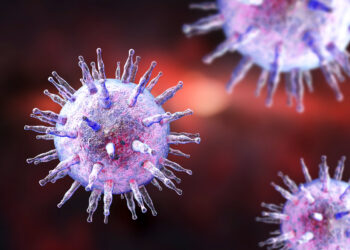Electroconvulsive therapy – Does it have a place in modern medicine?
18th August 2019
Electroconvulsive therapy (ECT) is a treatment for certain types of mental illness including severe depression, schizophrenia, catatonia or mania. With this treatment a current of electricity is passed through the brain (under anaesthesia) causing a fit or seizure. Although this treatment has been approved by the National Institute for Health and Care Excellence (NICE) for severe depression, we don’t actually know how it works.
In an article in the British Medical Journal (BMJ 2019;364; KS5233) this year, Professor John Read questions the data supporting the use of ECT stating that “The many reviews and meta-analyses claining that ECT works do so purely on the basis of temporary gains, in a minority of patients found in just half of the studies.” He continues his argument that “Despite this lack of evidence psychiatry remains so adamant that ECT works that no studies to establish efficacy have been conducted since 1985. Instead, many studies investigate which kind of ECT causes least damage.”
This debate, with a counter argument being proposed by Sameer Jauhar, formed part of the Maudsley debate (referenced above).
ECT was first used in 1938 and the first study in 1951 ( ie 13 years after it’s introduction) suggested that people who receive ECT fared worse than those that hadn’t. So let’s wind the clock forward by 81 years and look at what’s happening with the treatment of PANDAS and PANS where we are trying to get support for the use of antibiotics and anti-inflammatories for children with tics and obsessive compulsive behaviours and where the benefit:risk ratio is very much leaning towards benefit. Does this make sense?
I would love your thoughts…
Posted in: Health Politics, PANDAS by Dr Tim Ubhi




Comments
Julie Sefton
2019-08-20 21:20:21
https://www.edn.com/electronics-blogs/edn-moments/4426303/1st-breeder-reactor-plant-generates-electricity--December-20--1951 Seems there was lots of experimenting going on with electricity in 1951! That was a long time ago. If the patient had heavy metals in their body/brain, I wonder how would that, combined with electricity feel? Each patient is an individual. Time to think about this on a case by case basis, looking at things holistically with lab tests.
Emma
2019-08-20 19:44:59
It’s scary when you think about it. It is approved by NICE and the NIH even though no one actually knows how it works and the people who had it fared worse than those who did not! Yet here we are struggling to get appropriate treatment recognised for children with P/P. If someone was to do a study comparing children with P/P who had been treated and who had not, I’d put money on the outcome being the exact opposite of the ECT study done in 1951.
Dr Tim Ubhi
2019-08-18 13:31:55
The Maudsley lecture suggests to me that there is possible short term gain but weak evidence of long term benefit.
Georgia
2019-08-18 13:26:58
Thanks for posting btw! Does ECT work or is it a temporary fix? There’s always arguments for and against but unless we start to drill down, it will remain the default for many.
Georgia
2019-08-18 13:22:50
Personally, I believe we are in the midst of a paradigm shift in terms of treating in psychiatry. Primarily, educating Doctors regarding recognising or considering differentials is the biggest challenge. Organic aetiology is gaining more momentum but the uptake on the shop floor is trailing behind at a woeful pace. As I sit in my garden, free to think, I consider those right now who are locked up with treatable conditions outside the institutionalised /customary practice..... I ask the question that in relapsing/refractory schiz/OCD, bi-polar, depression etc, isn’t it time for these people who deserve further investigation and treatment get a chance of real living, not coexisting with the system. Isn’t it time that before they get to the end of their lives, they have the freedom just to think without the purgatory of unwanted dialogue.... that they can also sit in their gardens or park and just be?